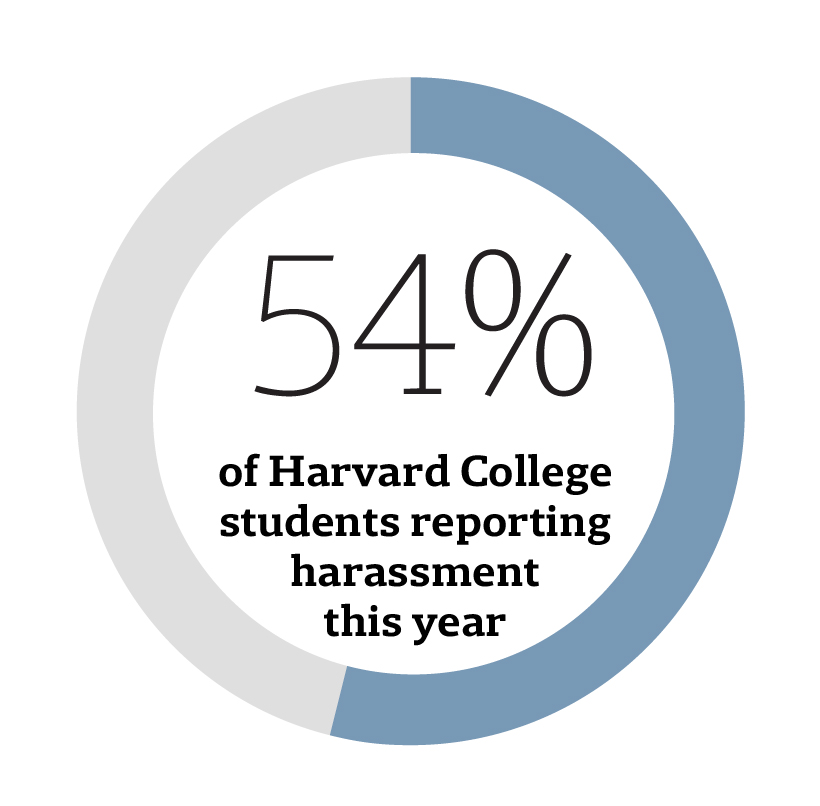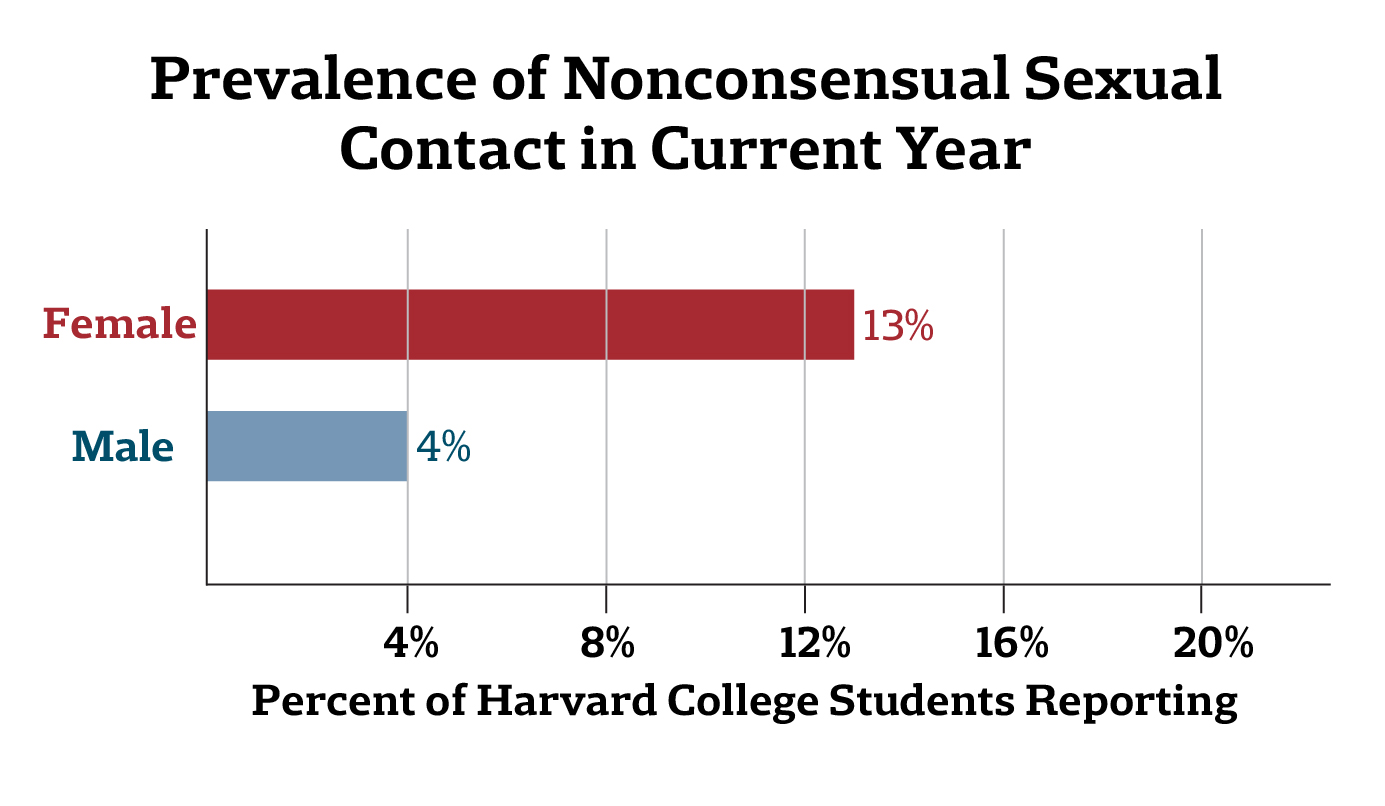
News
Cambridge Residents Slam Council Proposal to Delay Bike Lane Construction

News
‘Gender-Affirming Slay Fest’: Harvard College QSA Hosts Annual Queer Prom

News
‘Not Being Nerds’: Harvard Students Dance to Tinashe at Yardfest

News
Wrongful Death Trial Against CAMHS Employee Over 2015 Student Suicide To Begin Tuesday

News
Cornel West, Harvard Affiliates Call for University to Divest from ‘Israeli Apartheid’ at Rally
Students Call for Action On Report Recommendations

Harvard’s Task Force on Sexual Assault Prevention released a set of recommendations Tuesday afternoon, with implications for all of Harvard’s schools. Out of all schools, however, the report disproportionately focused on the College, given its “residential character,” and laid out a number of undergraduate-specific recommendations on undergraduate unrecognized single-sex social groups, alcohol policy, and sexual assault prevention trainings.

Analyzing undergraduate life on a variety of fronts, the report recommends that administrators consider larger policy changes, including discouraging hard alcohol consumption through potential experiments of bans on hard liquor. The report also recommends augmenting funding for parties, decreasing entry points in Houses, and additional support for BGLTQ programming.
University President Drew G. Faust wrote an email to Harvard affiliates Tuesday afternoon, with the report attached, in which she said she would accept the report’s “thoughtful recommendations.”
Dean of the College Rakesh Khurana sent his own email to undergraduates shortly thereafter, writing that many recommendations are unique to the College—Harvard’s only school explicitly mentioned in the report’s 20 pages—and that the College would develop its own plan to address the recommendations and submit it to Faust by the end of this academic year.
In an interview Tuesday evening, Khurana said although he plans to address recommendations specific to the College, he still needs time to “read it really carefully, to try to understand all the nuances of the report, and then develop a plan.”
Undergraduates involved with sexual assault advocacy on campus, meanwhile, said they were pleased with the report’s proposals, but are now waiting for the College to take concrete steps.
“I think the biggest thing at this point is implementation,” Jessica R. Fournier ’17, an organizer for anti-sexual assault advocacy group Our Harvard Can Do Better, said. “I think Harvard has said a lot of things about what they’re going to do... but until substantive actions are actually taken, I don’t know how much of their prevention efforts will be successful.”'
The report recommends yearly sexual assault prevention for all students at the University and standardized training for residential tutors—demands student activists have called for at a rally last semester.

The results of a sexual conduct climate survey released last semester showed 31 percent of female seniors who participated in Harvard’s sexual conduct climate survey reported experiencing "nonconsensual sexual contact" while at Harvard. At the time, Faust called the findings “deeply disturbing.”
According to the report, that number rose to 47 percent for female College seniors who participate in final club activities. According to the report, about 40 percent of female seniors participating in Greek life at Harvard reported sexual assault.
In Khurana’s email, he wrote he would specifically “address the issues raised in the report” about the College’s unrecognized single-gender social groups, and echoed much of the report’s rhetoric about unrecognized social groups serving as a key factor in the inaccessibility and exclusivity of the undergraduate social scene.
His email outlined no specific plan or policy proposals.
For Brianna J. Suslovic ’16, the mention of final clubs and other social groups in the report came as a surprise.
“I was pretty surprised to see such a strong stance on final clubs in the actual document… these really, really extensive comments that indicate statistically and anecdotally a lot of problems within the clubs,” Suslovic said. “It’s really, really exciting that there is administrative recognition [of final clubs] on a public level.”
Suslovic, previously a vocal critic of the clubs, penned an op-ed last April calling on the College to completely disband the groups. Suslovic said that in light of the survey results, the College should consider exercising some oversight over the clubs. In the past, some have questioned the legality of such a measure.
In his email, Khurana did outlined broad goals to work with the Office for Sexual Assault Prevention and Response, the University’s Title IX Office, and the College’s Office for Equity, Diversity, and Inclusion to implement annual sexual assault prevention trainings for all students. Currently, the College requires freshmen to complete an online alcohol education program called “Harvard Proof,” which the report recommended expanding to yearly and including a component on sexual assault.
Despite generally supporting the report, a number of students maintained reservations about the implementation of the task force’s recommendations in the long term.
One of the recommendations calls for the creation of a new position the Provost’s office to oversee sexual assault prevention and create working groups, but Fournier expressed concern that the creation of the new position would lead Harvard to “funnel” concerns and convert them to “non-actionable items.”
Undergraduate Council President Shaiba Rather '17 and Vice President Daniel “Danny” V. Banks '17 said they support the recommendations, and added that going forward they hope to facilitate discussions between final club members and College administrators.
“Danny and I will be involved in those conversations, and try to serve as a liaison between the two bodies that sometimes seem antagonistic,” Rather said.
The College administration has already taken steps in line with the report’s recommendations as far as centering social life away from unrecognized social groups is concerned. The report specifically commended the College-wide “[BLANK] Party” hosted by undergraduate women’s organizations this fall, and recommended continued moves to create social spaces in the Houses, similar to rooms created in Cabot and Adams Houses earlier this year.
—Staff writer Jalin P. Cunningham can be reached at jalin.cunningham@thecrimson.com. Follow her on Twitter @JalinCunningham.
—Staff writer Ignacio Sabate can be reached at ignacio.sabate@thecrimson.com. Follow him on Twitter@ignacio_sabate
Want to keep up with breaking news? Subscribe to our email newsletter.
